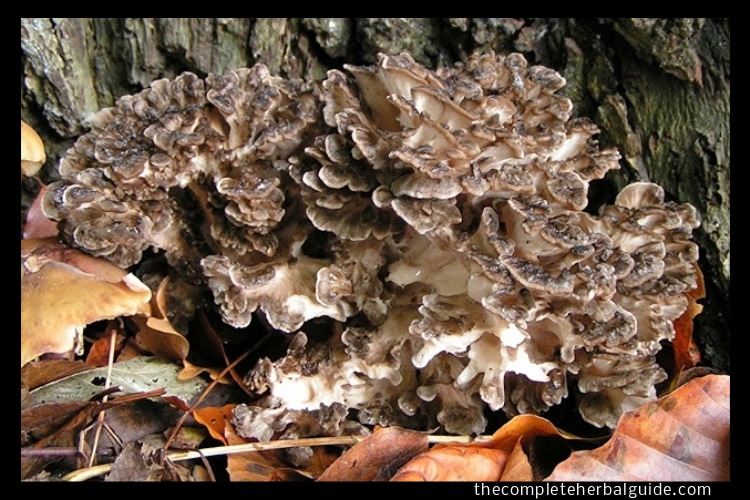
Papaya Leaf Uses, Benefits & Precautions
In this article, you’ll learn and discover the uses, benefits, and precautions of the papaya leaf.
Papaya Leaf contains a remarkable protein-dissolving enzyme called papain, and if you suffer from indigestion or heartburn, Papaya Leaf is a great supplement to try! The enzyme in Papaya Leaf also breaks down wheat gluten and carbohydrates for extra digestive protection.
Table of Contents
Papaya
OTHER NAME(S): Banane de Prairie, Caricae Papayae Folium, Carica papaya, Carica peltata, Carica posoposa, Chirbhita, Erandachirbhita, Erand Karkati, Green Papaya, Mamaerie, Melonenbaumblaetter, Melon Tree, Papaw, Papaya Fruit, Papayas, Papaye, Papaye Verte, Papayer, Papita, Paw Paw, Pawpaw
Plant Description
Papaya Leaf is a herbaceous tree with a stem of spongy softwood that is hollow in the center and bears melon-like fruit. It is an interesting tree in that the male and female parts exist in different trees, and trees may grow to a height of twenty to thirty feet. The Papaya Tree needs a tropical climate that is dry when cold and wet when warm; consequently, its greatest success appears in the equatorial zone with its warm wet season and cool dry season.
It is extremely sensitive to frost, and water-logging will kill the taproot within forty-eight hours. The Papaya is especially susceptible to parasites, pests, and diseases. This fussy plant needs a lot of water but must have good drainage, and it bears most fruit in light, porous, slightly acidic soils rich in organic matter. Said to be a native of the Caribbean and Central America, the Papaya is the true papaw that now grows abundantly throughout tropical America, Hawaii, and many other tropical climates throughout the world.
Papaya Leaf Juice Benefits
Although grown to some extent in South Florida, the true papaw is not related to the North American papaw. The fruits, leaves, and latex are all used medicinally. The fruit is usually pear-sized and has a central cavity filled with edible, pea-sized seed, which is said to have a similar flavor as capers. Papaya Leaves are cooked and considered green vegetables and are a rich source of gummy, milky, white latex that contains the powerful enzyme papain. This protein-dissolving substance is an excellent remedy for stomach and digestive disorders.
Papain is so powerful that Papaya Leaves have been wrapped around meats to break down the fibers and tenderize them. It is included in commercial preparations as a meat tenderizer and is often used for that purpose in restaurants. And is also used commercially in chewing gums and as a stabilizing agent that is used to clarify beer.
Papaya Leaves were even fed to animals to tenderize their flesh. Some of Papaya Leaf’s constituents include the fermenting agent myrosin, alkaloids, rutin, resin, tannins, carpaine, dehydrocarpaines, pseudocarpaine, flavonols, benzylglucosinolate, linalool, malic acid, methyl salicylate, another enzyme, chymopapain (latex and exudate), calcium, iron, magnesium, manganese, phosphorus, potassium, zinc, beta-carotene, B-vitamins and vitamin A, C, and E.
Papaya Leaf Health Benefits
Digestion
Papaya Leaf is an excellent treatment for digestive disorders and extremely useful for any disturbances of the gastrointestinal tract. Papain, the powerful enzyme in Papaya, helps to dissolve and digest protein, thus easing stomach ailments and indigestion.
Papaya Leaf for Meat Tenderizers
Because papain breaks down tough meat fibers, it is often used in restaurants and is the major ingredient in commercial meat tenderizers!
Heartburn and Gas
Papaya is effective in easing heartburn and is given to treat dyspepsia and gastric catarrh.
Improves Appetite
Papaya is known to be an appetite-stimulant fruit and help baby gain weight faster. The best part is it is also a vitamin-rich food, particularly providing your baby with vitamins A, C, and E. This makes it a healthy option to help your baby improve his appetite.
Celiac Disease
Papaya Leaf’s enzyme, papain, not only digests protein but it extends its activity to digest carbohydrates. Papain also breaks down wheat gluten, which may be helpful for those suffering from Celiac disease. Those who have difficulty digesting starchy foods, such as bread, cereals, and potatoes, might find great relief in including Papaya in their diets.
Prostate Inflammation
The papain in Papaya is thought to relieve acute prostate inflammation and may be very helpful in cases of benign prostatic hypertrophy (BPH). Clinical studies in Russia found that papain treatment reversed rectal lesions induced by extreme prostate enlargement in over 97 percent of the men treated.
Herpes
The papain in Papaya is currently undergoing studies to investigate its efficacy in treating the herpes simplex virus and herpes zoster (shingles).
Indigestion
Papayan enzyme, chymopapain, has been used to treat slipped spinal discs and pinched nerves. Since many stomach problems are the direct result of indigestion, the use of Papaya appears to help prevent many ailments. It stimulates digestive acids and the production of bile, which may also lead to a healthier liver and pancreas.
Constipation
Papaya is said to stimulate the bowels in times of constipation and is also believed to be useful in treating inflammatory bowel disorders.
Parasites
In many areas of the world, Papaya is used as a vermifuge, anthelmintic, and amoebicide that eliminate worms and other parasites, and it is thought that the papain content digests the invaders, Papaya’s latex also works as a dewormer by its purgative actions, increasing the movement of intestinal contents.
What Is the Proper Dosage of Papaya Leaf Liquid Extract?
The appropriate papaya leaf liquid extract or for papaya used as treatment depends on factors such as the user’s age, health, and several other conditions. There is insufficient scientific information to determine an appropriate range of doses for papaya.
Remember that natural products are not always safe, and dosages can be important. Be sure to follow relevant directions on product labels and consult your pharmacist, physician, or other healthcare professional before using.
Papaya leaf juice dosage. There are very little data available to make specific recommendations regarding the doses of papaya leaf juice papaya.
Precautions
People who take blood-thinning medication (Coumadin, aspirin, etc.) should consult with their physicians before taking this herb, as it may have anticoagulant properties. Pregnant women should avoid Papaya, as it can be a uterine stimulant (papain dissolves a protein(s) responsible for adhering the newly fertilized egg to the uterus wall).
People should never take papaya in all its forms with a latex allergy (causing anaphylactic shock).
Inhaling papaya powder (high in enzymes, papain, and chymopapain, can induce allergies.
Warfarin (Coumadin) interacts with PAPAYA
Warfarin (Coumadin) is used to slow blood clotting. Papaya might increase the effects of warfarin (Coumadin) and increase the chances of bruising and bleeding. Be sure to have your blood checked regularly. The dose of your warfarin (Coumadin) might need to be changed.
Pregnancy and breastfeeding
Papaya is POSSIBLY UNSAFE when taken by mouth during pregnancy. Do not take papaya by mouth in medicinal amounts if you are pregnant. There is some evidence that unprocessed papain, one of the chemicals found in papaya, might poison the fetus or cause birth defects. Not enough is known about the safety of papaya during breastfeeding. It is best to avoid taking it in amounts higher than normal food amounts.
Diabetes
Papaya that has been fermented can lower blood sugar. People with diabetes who are taking medications to lower their blood sugar should pay close attention to their blood sugar as medication adjustments might be needed.
Low blood sugar
Papaya that has been fermented can lower blood sugar. Taking this form of papaya might make blood sugar too low in people with low blood sugar.
Underactive thyroid gland (hypothyroidism)
There is a concern that eating large amounts of papaya might make this condition worse.
Latex allergy
If you are allergic to latex, there is a good chance you are also allergic to papaya. If you have a latex allergy, avoid eating papaya or taking products that contain papaya.
Papain allergy
Papaya contains papain. If you are allergic to papain, avoid eating papaya or taking products that contain papaya.
Surgery
Papaya that has been fermented can lower blood sugar. In theory, this form of papaya might affect blood sugar during and after surgery. If you are taking papaya, you should stop two weeks before surgery.






